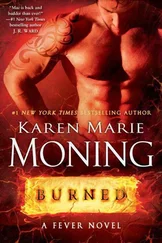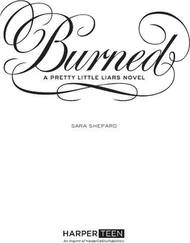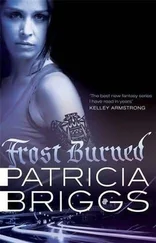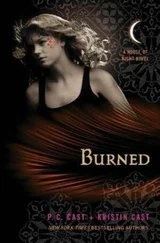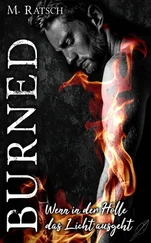Thomas Enger - Burned
Здесь есть возможность читать онлайн «Thomas Enger - Burned» весь текст электронной книги совершенно бесплатно (целиком полную версию без сокращений). В некоторых случаях можно слушать аудио, скачать через торрент в формате fb2 и присутствует краткое содержание. Жанр: Триллер, на английском языке. Описание произведения, (предисловие) а так же отзывы посетителей доступны на портале библиотеки ЛибКат.
- Название:Burned
- Автор:
- Жанр:
- Год:неизвестен
- ISBN:нет данных
- Рейтинг книги:5 / 5. Голосов: 1
-
Избранное:Добавить в избранное
- Отзывы:
-
Ваша оценка:
- 100
- 1
- 2
- 3
- 4
- 5
Burned: краткое содержание, описание и аннотация
Предлагаем к чтению аннотацию, описание, краткое содержание или предисловие (зависит от того, что написал сам автор книги «Burned»). Если вы не нашли необходимую информацию о книге — напишите в комментариях, мы постараемся отыскать её.
Burned — читать онлайн бесплатно полную книгу (весь текст) целиком
Ниже представлен текст книги, разбитый по страницам. Система сохранения места последней прочитанной страницы, позволяет с удобством читать онлайн бесплатно книгу «Burned», без необходимости каждый раз заново искать на чём Вы остановились. Поставьте закладку, и сможете в любой момент перейти на страницу, на которой закончили чтение.
Интервал:
Закладка:
He passes the kitchen. There is a plate with a few crumbs and a glass with traces of milk in the sink. He heads for the living room, sits down in a chair so soft he wonders if his backside is touching the floor. He can see the hallway, past the shoes, to the front door. Everywhere is clean.
He looks around, as he always does when he visits someone. Details, his old mentor, Jarle Hogseth used to say. The first thing that strikes him is the surprising number of plants and flowers in a flat inhabited by two brothers. An impressive large pelargonium with pink flowers sits on the windowsill. Orchids in a vase on a corner table. Pink roses. The brothers clearly have a thing about pink. Two candleholders with white candles. A large television, 45 inches, at least, he reckons, stands up against the wall. Home cinema — of course — from Pioneer, with tall speakers either side of the television and two behind. Henning looks for the subwoofer and assumes it must be hidden under the dark brown sofa. If he had been in a home in Oslo’s West End, he would have guessed the sofa was designed by Bolia.
The coffee table is low and inspired by oriental style, with curved legs and a square top. The table was black once, but has now been painted white. A clean glass ashtray sits in the middle. More flowers. Another candlestick. A photo of a large Pakistani family, the family in Islamabad, he guesses, hangs on the vanilla-coloured wall. There is a fireplace in one corner.
But no photos of Henriette Hagerup.
The flat is starting to affect him. He had imagined a dump, dust everywhere, mess and rubbish. This flat, however, is tidier than his own has been for the last six months, longer, perhaps.
He knows he is prejudiced. But he likes prejudices, likes having to review or change his opinion when he learns something about a subject, which overturns a preconceived notion. The knowledge he has gained from studying the Marhoni brothers’ flat is like one of those boiled sweets that doesn’t look very tasty, but tastes delicious when you unwrap it and pop it in your mouth.
He smiles as Tariq appears in the hallway. Tariq has put on a pair of black jeans and a black linen shirt. He goes to the kitchen. Henning hears him open and shut the fridge quickly, then he opens a cupboard and takes out a glass.
‘Do you want a glass of milk?’ he calls out.
‘Eh, no thanks.’
Milk, Henning muses. He has made numerous home visits, but no one has ever offered him milk before. He hears a firm glass-hitting-kitchen-counter slam followed by a grunt of satisfaction. Tariq enters the living room and sits down opposite him on a wooden stool. He takes out a packet of cigarettes and offers Henning a white friend. Henning declines, muttering something about having quit.
‘What happened to your face?’
The unexpected question takes Henning by surprise. He replies without thinking.
‘My flat burned down two years ago. My son died.’
He doesn’t know if it is the brutal truth or the unsentimental way in which he said it that makes Tariq uncomfortable. He tries to say something, but stops. Tariq fumbles with the cigarette, lights it and tosses the lighter on the coffee table. Henning follows the rectangular tool from hell with his eyes, watches it skid to a halt by the ashtray.
Tariq looks at him. For a long time. Henning says nothing; he knows that he has stirred Tariq’s curiosity, but he has no plans to bombard him with questions. Not yet.
‘So you don’t think my brother did it?’ Tariq asks and takes a deep drag on his cigarette. He pulls a face, as if it tastes of stinking feet.
‘No.’
‘Why not?’
He answers frankly.
‘I don’t know.’
Tariq snorts.
‘And yet you don’t think he did it?’
‘That’s right.’
They look at each other. Henning doesn’t capitulate; he isn’t scared of what his eyes might reveal.
‘So what do you want to know?’
‘Do you mind if I use this?’
He takes out his Dictaphone and places it on the table between them. Tariq shrugs.
Far too few reporters use a Dictaphone. When he first started out, he would scribble like a maniac while listening to what his subjects said and thinking about the next question to ask them. Needless to say that was a hopeless way of conducting an interview. You don’t catch everything that’s being said and your follow-up questions aren’t logical either, because you’re concentrating on two things, at least, at the same time. Dictaphones are brilliant.
He presses ‘ record ’ and leans back in the chair. He puts his notebook in his lap. Pen poised. A Dictaphone should never replace pen and paper. If the recording fails, you will be grateful you made some notes, ideas to follow up later.
He looks at Tariq and can see he is upset by the arrest of his brother. A murder suspect. He has probably been wondering how to break it to the family back home. What will their friends say?
‘What can you tell me about your brother?’
Tariq glares at him.
‘My brother is a good man. He has always taken care of me. He was the one who got me up here, away from Islamabad, away from the slums and the crime there. He said life in Norway was good. He paid for my ticket, gave me a place to stay.’
‘What does he do for a living?’
Tariq looks at him, but doesn’t reply. Too soon, Henning thinks. Let the man talk.
‘It was tough to begin with. Couldn’t speak the language. Our only friends were other Pakistanis. But my brother got me in to Norwegian classes. We met people from other countries. Norwegian women — ’
He sings the last word slightly and smiles. His smile promptly disappears. Henning says nothing.
‘My brother didn’t kill anyone. He’s a good guy. And he loved her.’
‘Henriette?’
Tariq nods.
‘Had they been together for a long time?’
‘No. A year, that was all.’
‘What was their relationship like?’
‘Good, I think. A lot of action.’
‘They had a lot of sex, you mean?’
Tariq smiles. Henning can tell that Tariq has a memory, perhaps several, in his head. He nods.
‘Were they faithful to each other?’
‘Why do you ask that?’
‘You think the police haven’t asked your brother that question already?’
Tariq doesn’t reply, but Henning can see he is debating it.
‘It was a bit on and off.’
‘What do you mean?’
‘I think they broke up many times, but they always got back together again. And they were at it yesterday afternoon, well, I don’t know anyone who does that.’
‘So they — ’
Tariq nods.
‘Henriette made a lot of noise. She always does, but it was extra loud yesterday.’
The smile fades. He hasn’t smoked for a minute, but now he takes a deep drag of stinking feet again before stubbing out the cigarette in the ashtray.
‘They met at the Mela Festival. Nothing happened at the time, later they ran into each other at a film audition. Then it was — ’
Tariq’s mobile rings from what Henning assumes to be a bedroom. He has heard the ring tone before, but he can’t place it. Tariq is momentarily distracted, but he ignores the call. He reaches out for the lighter, picks it up and studies it.
‘It’s a bad thing that’s happened,’ he says without raising his head.
‘Do you have any idea who might have done it?’
Tariq shakes his head.
‘Did Henriette and your brother have mutual friends they hung out with?’
Tariq presses the lighter wheel hard. A proud flame shoots out. Henning feels his chest tighten.
‘We’re from Pakistan. We’ve lots of friends.’
‘Any ethnic Norwegian friends?’
‘Many.’
‘Were some of them married?’
‘Married?’
Читать дальшеИнтервал:
Закладка:
Похожие книги на «Burned»
Представляем Вашему вниманию похожие книги на «Burned» списком для выбора. Мы отобрали схожую по названию и смыслу литературу в надежде предоставить читателям больше вариантов отыскать новые, интересные, ещё непрочитанные произведения.
Обсуждение, отзывы о книге «Burned» и просто собственные мнения читателей. Оставьте ваши комментарии, напишите, что Вы думаете о произведении, его смысле или главных героях. Укажите что конкретно понравилось, а что нет, и почему Вы так считаете.

